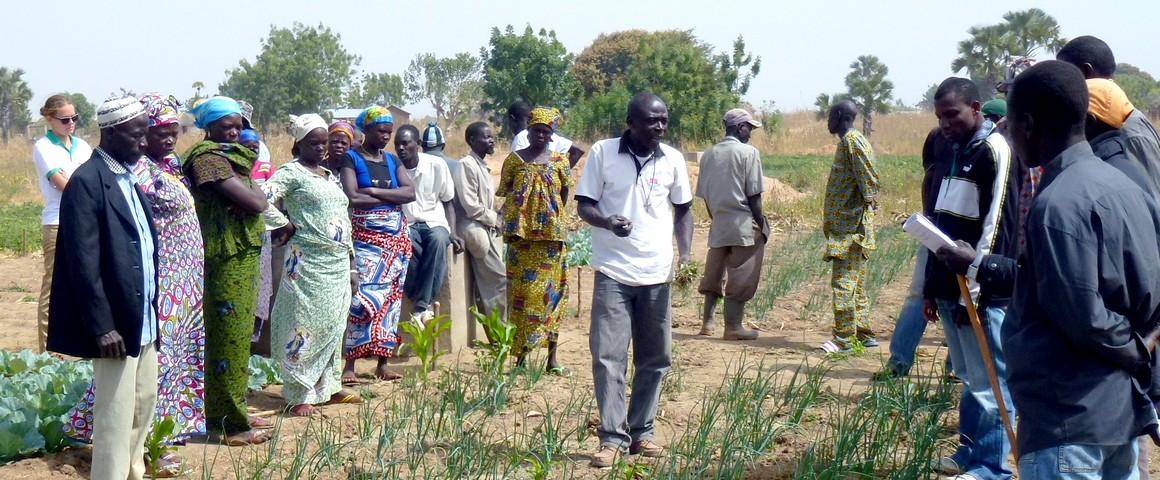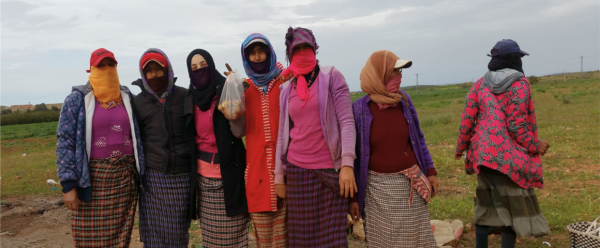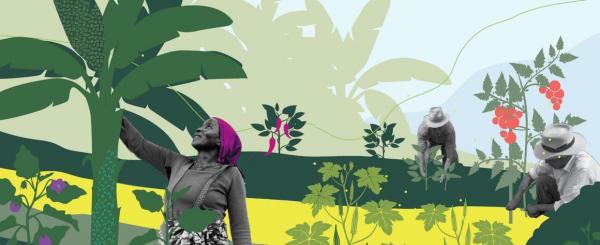Just out 30 January 2026
- Home
- CIRAD news
- News
- Perspective No. 57 - Field schools for agroecology
Farmer field schools, to achieve a successful agroecological transition and re-think agricultural advisory services

Plot observations and commentary during a vegetable farmers field school in northern Togo © T. Bakker, CIRAD
The agroecological transition implies rethinking the way farmers are supported in their changes in practices. Farmer field schools are particpatory mechanisms that build farmers’ capacity to experiment, to produce knowledge and to innovate independently. However, it is essential that these advisory services are correctly implemented, which has implications for the research and development community.
A study conducted in sub-Saharan Africa shows that after taking part in farmer field schools, farmers are more likely to make changes on their own farms if they have been involved in the decision-making process for the field school.
Collaborative rather than consultative field schools
The study in Burkina Faso and Togo was based on interviews with farmers who had participated in farmer field schools.
In Burkina Faso, those field schools were consultative: their content (crops, technical options to be tested, plot monitoring indicators) was chosen by experts prior to implementation in the field. The farmers involved in fact made few changes on their farms .
In contrast, in Togo, the farmer field schools were collaborative, with content chosen by farmers during a diagnostic workshop. This approach builds their capacities: identifying a problem, developing solutions and assessing them through on-farm experiments. Following those field schools, the participants tested and adapted their practices gradually on their farms.
Collective actions have even removed some of the constraints preventing those farmers from implementing agroecological practices individually. For example, vegetable farmers began to use biopesticides tested in farmer field schools, although producing them is time-consuming. They therefore decided to produce these biopesticides collectively in order to achieve economies of scale. They made arrangements for all vegetable gardeners in a given area to treat their crops on the same day, since these biopesticides mostly act as a repellent against insect pests and simultaneously treating all plots means none are left as a refuge.
Rethinking agricultural support and public policy
The agroecological transition is built on principles that must be adapted to the local context, rather than on the transfer of turnkey technologies. Development projects that integrate this dimension are therefore unable to accurately anticipate the content of farmer field schools. Donors and stakeholders in these projects must accept that their objectives might change over time, and that the activities in the intervention could also change. Moreover, mixed qualitative and quantitative impact assessments are more effective.
Lastly, training for facilitators could be improved, and farmer field schools should also be designed in accordance with the agricultural support policies conducted at different levels in order to create an environment conducive to the agroecological transition.
Perspective
With Perspective, CIRAD sets out to suggest new lines of debate and action, backed up by research work, albeit without presenting an official institutional position.
This series of 4-page summaries presents novel ideas or policies on development issues of strategic importance for countries in the South: food security, land tenure, climate change, energy security, forest management, standards, etc.



























